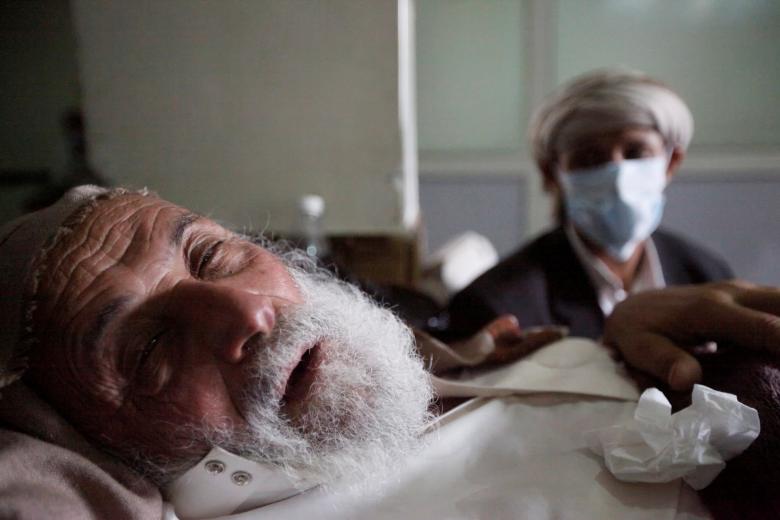Taiz- As the number of suspected cholera cases in Yemen reaches unprecedented levels, with one in every 200 Yemenis suspected of having been infected with the disease, the International Committee of the Red Cross (ICRC) is stepping up its response to the crisis.
The ICRC is warning of unprecedented rates of cholera cases in war-torn Yemen, one of many similar warnings from international health organizations in the past few months.
“Over 124,000 Yemenis have cholera, and more than 900 people have already died from the disease,” ICRC said in a statement.
Areas under control of Houthi militias have been suffering from epidemics due to the absence of government institutions, which they have looted late September 2014.
“More than 5,000 suspected new cases have been reported daily during the past week,” said Maria del Pilar Bauza Moreno, ICRC health coordinator in Yemen. “The spread of the disease, which started just over a month ago, is accelerating.”
A deadly cholera epidemic sweeping Yemen is spiraling out of control, with at least one child infected every minute, warned ‘Save the Children’.
The rate of infection has more than tripled over the past two weeks, and 46 percent of the estimated 5,470 new daily cases of suspected cholera/acute watery diarrhea (AWD) are children under 15 years.
This means an average of 105 children are contracting cholera/AWD every hour – or one every 35 seconds.
More than 30 people a day are already dying, many of them children, and thousands could perish with up to 300,000 cases predicted in the coming months.
More than 2 million Yemeni children are acutely malnourished and they are particularly vulnerable, as their weaker immune systems are unable to fend off the illness.
Yemen is in the grip of a full-blown epidemic. But treating cholera is easy and inexpensive, providing patients can get the treatment they need.
Yemen’s crippled infrastructure, food insecurity, failing economy and the ongoing war, mean many are unable to seek out help in time, with hospitals overwhelmed and short of supplies.
The situation is particularly bad in more remote parts of the country with little or no access to health services.
War, near-famine conditions, and a complete breakdown in basic social services, including affordable transportation and access to clean water, are making the outbreak worse.
Yemen’s health services can’t cope with the huge numbers of sick people presenting themselves with symptoms, including diarrhea, vomiting, and dehydration. Cholera is contagious and is spreading quickly because hospitals are not operating at full capacity. Some have been targeted by parties to the conflict.
Grant Pritchard, Yemen Country Director, Save the Children, said: “Disease, starvation, and war are causing a perfect storm of disaster for Yemen’s people. The region’s poorest country is on the verge of total collapse, and children are dying because they’re not able to access basic healthcare.”
